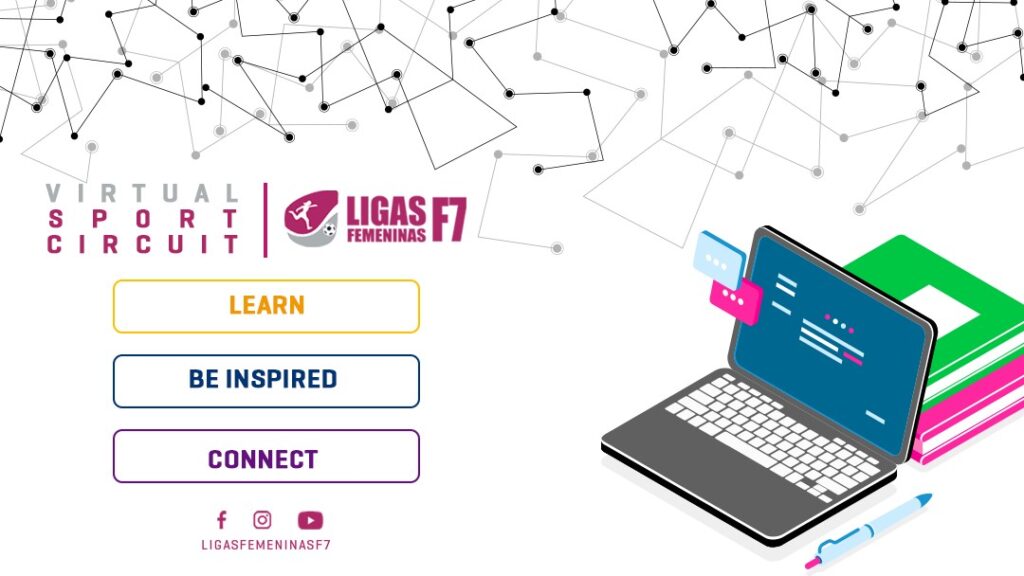How to Promote Gender Equality through Sports During Times of Social Distancing?

Thalia Simich was a participant in the program, “Fostering Women’s Entrepreneurship and Growth in Non-Traditional Sector 2018-2019”, hosted by ICE and WEI Forward, with the support of the British Embassy in Peru. She tells us what challenges her social enterprise is facing and what innovations her team has been implementing in order to continue promoting gender equality in Peru.
I am the Director of Strategic Partnerships and Sustainability at Ligas Femeninas de F7 (LF7), a social enterprise and sports development agency that seeks to create spaces for women and men in order to promote gender equality in sports. Since 2014, LF7 has been committed to empowering women and girls by allowing them to practice and play football in a safe space, free from prejudice and discrimination. Football is one of the most important elements of Peruvian culture, but it has been traditionally perceived as an all-male sport. Our program uses football to break paradigms and teach girls and women to be brave, speak out and discover that they are capable of succeeding at whatever they choose to do. We also use football as a means of outreach and capacity-building, attracting community members and raising awareness about personal development, gender stereotypes, the physical, psychological and social benefits of sports, etc.
On March 16 2020, the Peruvian Government declared a state of emergency and imposed a mandatory lockdown to prevent the spread of COVID-19. LF7 and our community members had to suspend all of our activities, including the vitally important interactions on the football pitch.
Under the leadership of Mariela Drago, LF7’s General Manager, we reaffirmed our commitment to the community. As Mariela has said, “The first challenge as an organization was to stay connected. The LF7 has a diverse staff and it was important for me to understand the background of each one, in order to set their roles and duties in this context. We understood that being flexible and innovative were the mindsets we needed the most.”
With flexibility and innovation in mind, Mariela and I came up with a new proposal for the LF7 during lockdown: A Virtual Sports Circuit, comprised of three digital spaces for Learning, Being Inspired, and Connecting:
- Learning with LF7: Online workshops on topics of interest to the LF7 community. The sessions will be led by an expert in the field, and LF7 will encourage its community members to facilitate the sessions and share their questions and their knowledge.
- Being inspired by LF7: Sports Seminars (one speaker) and Sports Conferences (3 or more panelists) on current issues, with the participation of national and international representatives from various sports who will describe their experiences, including critical challenges and achievements. LF7 recognizes that representation is key to achieving gender equality—”you have to see it to be it”—which is why we will continue to support and spread news about positive role models and their actions.
- Connecting with LF7: Regular, scheduled conversations to create and sustain connections within the LF7 community. Moderated by a LF7 host, these informal conversations will serve as a reliable touchpoint for community members, keeping them connected, facilitating the exchange of ideas and generating networking opportunities.
In our current context of social distancing, it is more important than ever to stay as connected as possible and strengthen our support networks. This is why we have reinvented ourselves as an organization and transformed our physical spaces into virtual platforms.
All the Virtual Sports Circuit spaces will be available for everyone to join through the social media channels of Ligas Femeninas de F7.